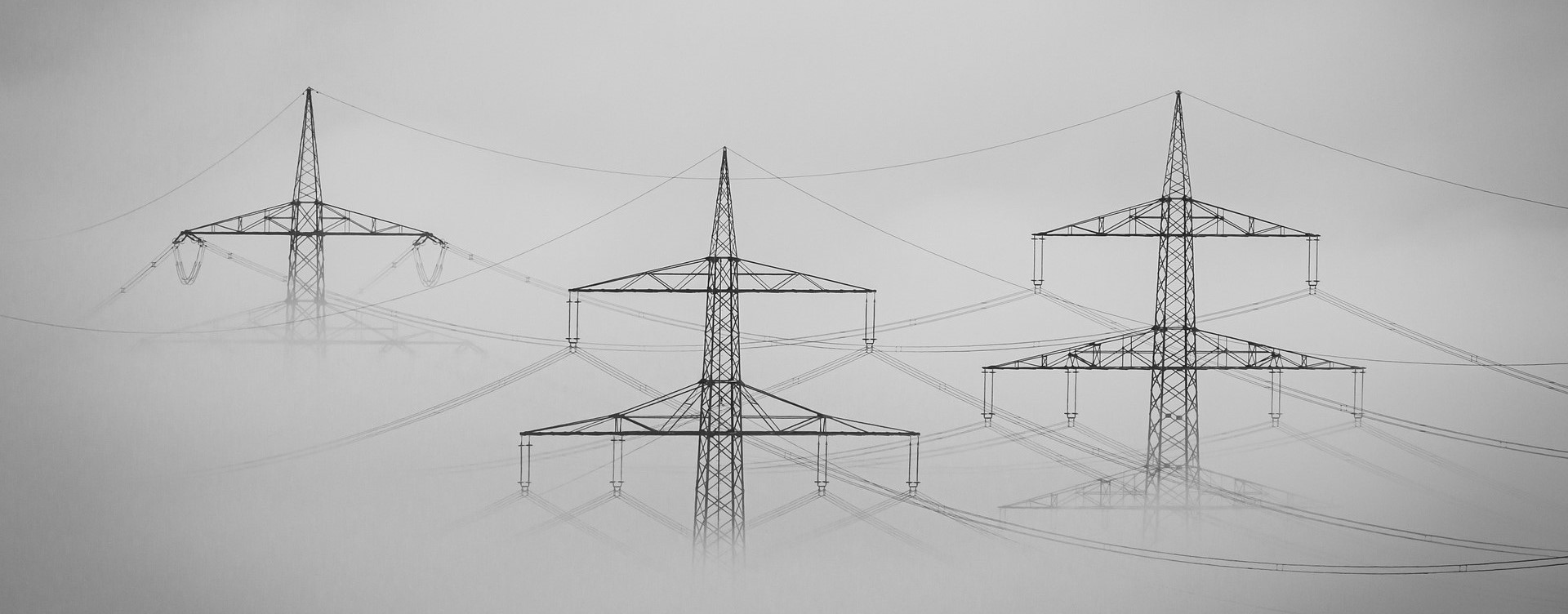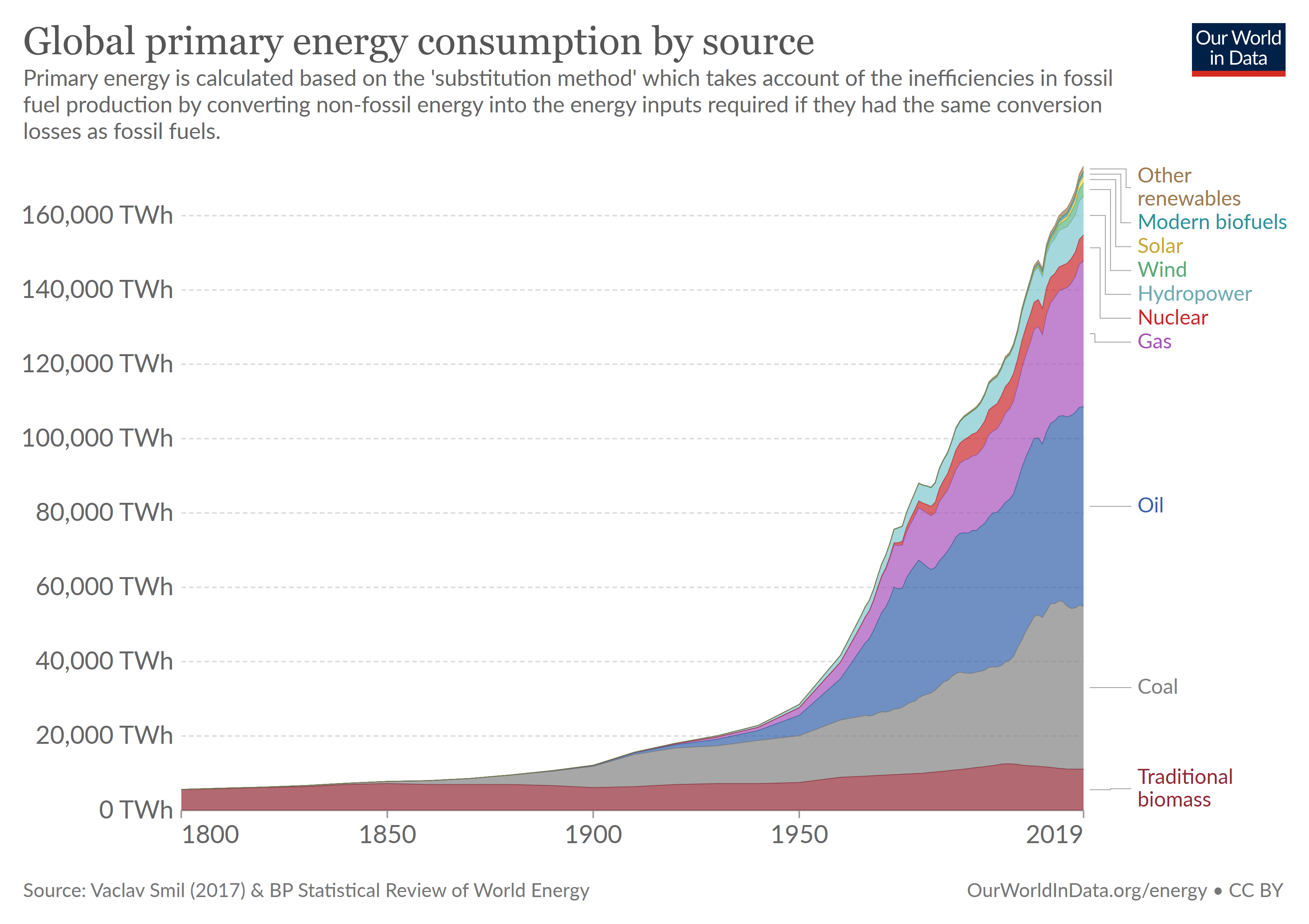When the transition goes wrong, sobriety comes into play.

There has never been an energy transition in history, as historian Jean-Baptiste Fressoz reminds us in an interview given to ELUCID on 18 June. As the famous curve of world energy consumption shows, each source has been piled on top of the previous one as technology has evolved (wood, coal, oil, gas, hydro, nuclear …). Will we succeed in replacing three of our main energy sources in just under 30 years, when we have never really succeeded in replacing any of them?

The huge inertia of the energy system
There is indeed reason to be sceptical. First of all, it is clear that it will be difficult to substitute fossil fuels, since they are so easy to use: high energy density, easy to store (especially for oil and coal) and easy to transport (especially for oil).
But what the historian shows in his work is that this stacking is also explained by industrial symbioses between the different energy sources. In other words, each energy source depends on another for its production and/or use:
- Coal required (and still requires) large quantities of wood for the structure of underground mine galleries.
- The transport sector, which consumes the majority of oil production, requires large quantities of steel for the production of infrastructure and vehicles. Just over 70% of the world’s steel is currently produced from coal.
- The construction of renewable energy infrastructures (solar panels or wind turbines for example) requires fossil fuels (oil for the extraction of ores, coal for the refining of silicon, etc.). This is why a kWh of electricity, even if it is renewable, is never completely decarbonised.
According to Jean-Baptiste Fressoz, the term energy transition is therefore misleading. It makes us believe that the issue is primarily technical, it is only a matter of replacing fossil energy sources with less carbon-intensive sources, and does not in any way question our consumption habits.
Sobriety to the rescue of the transition
However, as the recent article by the heads of EDF, Engie and TotalEnergies published in the JDD demonstrates, a change in consumer behaviour is already necessary to face the slow transformation of the energy system.
Of course, this need for sobriety is part of the context of the Russian invasion of Ukraine, but it is also the result of the delay in the construction of new renewable production capacities and the ageing of the nuclear reactors.
It is not entirely clear if this call for sobriety is only due to circumstances. The authors first speak of a “necessary exceptional sobriety” in the face of the crisis, but promise to help consumers prepare for a “long-term sobriety”, while hastening to specify that the latter will not “significantly affect our lifestyles”. In short, it is clear that the path will not be as easy as expected.
Did you say sobriety?
If the word sobriety is harsh, it is because it implies giving up a service that we took for granted: access to abundant and cheap energy. This renunciation may result in a reduction in comfort for the most affluent populations, but may also prove impossible for the most precarious.
Whatever solution is chosen for the implementation of this sobriety, it must take into account these different cases: How to engage citizens who do not have any problem with the cost of energy? How far can prices be raised to induce these changes in behaviour while protecting the most vulnerable? On the other hand, to what extent can we count on an awareness that would lead those who can, to voluntarily reduce their consumption?
The issue of organising this sobriety is therefore at least as important as that the decarbonization of the energy mix. It will be crucial to maintain “social cohesion” in the face of the risk of shortage.
